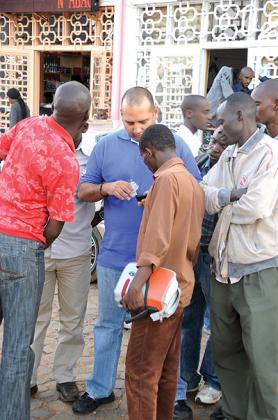Mobile phone users have begun enjoying low off-net mobile calling tariffs as telecom operators revise interconnection fees.


Mobile phone users have begun enjoying low off-net mobile calling tariffs as telecom operators revise interconnection fees.Under the four-year glide path set by the sector regulator, Rwanda Utilities Regulatory Agency (RURA), mobile interconnection charges— the fee telecom providers charge each other to transmit calls across networks—currently at Rwf32, will fall to Rwf28 in January 2013 and ultimately to Rwf22 in January 2014.The fees were first dropped in July last year from Rwf40 to Rwf35 as part of the recommendations contained in the study by PricewaterhouseCoopers (PWC).The glide path methodology was recommended by PWC as an industry best practice to implement an interconnection rate review without destabilising operator’s business plansLower interconnection charges would encourage operators to reduce their prices, meaning that the benefits would be filtered down to the end users.According to MTN’s Chief Marketing Officer, Yvonne Makolo, the fees were dropped months back, leading the operator’s to slash the off-net tariff from Rwf90 to Rwf60. The move is also set to ease the tension within the industry, where Tigo Rwanda and the defunct Rwandatel relentlessly lobbied for the review of the rate, arguing that it was placing an undue burden on consumers.Jean Batiste Mutabazi, Rwanda Utilities Regulatory Agency’s (RURA) head of Communications, noted that the new kids on the block tend to enjoy lower interconnection rates than the sector giant, MTN."Tigo and Airtel are most likely to have an advantage with the new figures as MTN would want to have the rates up,” Mutabazi said.He noted that the regulator does not regulate tariffs. However, he stated that operators cannot charge below the interconnection rates as they could lose out to competitors.Prior to the review, interconnection fees had become the subject of serious concern in the local telecom industry as commercial courtrooms became the battleground for Rwandatel and MTN.MTN dragged Rwandatel to court seeking legal action to recoup outstanding interconnection debts believed to be in the region of Rwf4b.Rwandatel’s GSM mast assets were recently sold out to the new entrant, Airtel, for US$15.5 million (Rwf9.2 billion) to help compensate Rwandatel’s creditors. MTN has had a comparative advantage over its competitors as more calls are made on its network since it has more subscribers.In a recent interview, Bharti Airtel’s CEO (International) and Joint Managing Director, Manoj Kohli, said high interconnection rates within the country would not in any way affect the operator’s operations."Airtel believes that RURA and Government will look at the cost from time to time and the rates will be slashed accordingly,” Kohli noted.


